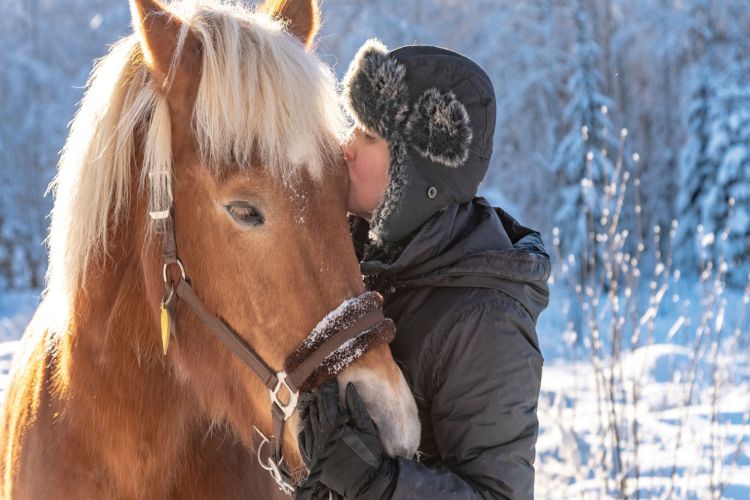 The winter season is fast approaching, and you need to maintain your horse’s health during the colder months.
The winter season is fast approaching, and you need to maintain your horse’s health during the colder months.
Your horse care schedule needs a lot of change during this season, and it can get overwhelming. You would not want to miss out on crucial equine care elements that could affect your horse’s health.
To ensure that you are on top of caring for your horse, we’ve made a list of things you need to do for them
Let’s get started!
-
Table of Contents
Clipping Your Horses
If you have an active horse who sweats regularly even during the winter months, you need to get a horse clipper kit. We recommend doing a trace clip where you shave your horse’s hair to about ⅛ inch in length.
It should also be noted that your animal’s hair doesn’t grow quickly during the winter months. So, if you decide to do a complete body clip, where you shave its neck, legs, and body, you shouldn’t leave them out and about in the cold weather.
We suggest you go for a small clip and if you opt for a complete clip, provide them with proper and safe shelter and blankets throughout the season.
-
Give Them More Water
Your horse needs more water during the colder months to stay healthy and hydrated. It’s because if they don’t drink enough water, they may eat less food and can be prone to diseases.
Even if you offer the best food, horses won’t consume it if you don’t provide enough water. It’s because the digestion process is slower during the winter season. It causes issues because if your equine friend doesn’t eat enough, it may not have the required energy to tolerate the cold.
On top of that, having water helps horses maintain their fecal moisture level. If they don’t drink enough water, their feces may become too dry, causing health problems like intestinal blockage or impaction.
Just ensure that your horses are properly fed and watered to produce enough energy to keep away the cold.
-
Provide Them With Regular Exercise
One mistake many horse owners make during the winter is to confine their steeds. Being cooped up in their stables means, they don’t get enough exercise, leading to problems like lower leg swelling.
Instead, you should get your horse to exercise and run around as much as possible. However, you should be careful if you are taking your horse out in deep, heavy, or wet snow.
It can be difficult for an unfit horse to wade through the snow and can cause tendon injuries. Additionally, you should avoid going to icy areas, as it’s slippery and can be dangerous for you and your colt.
-
Give Them Access to Shelter
Horses should have easy access to their shelter to protect themselves from extreme weather and storms. Typically, they should have a stable or an open-sided shed.
However, if you don’t have a building, you can place them under the trees where they can protect themselves from snow. Additionally, you should make sure to provide proper ventilation to your horse.
This means you should keep the door and windows open for as long as possible. Lastly, your horse should stay completely dry so be sure to remove wet bedding or cover them with blankets.
-
Feed Your Horses Properly During Winter
Your horse needs more food to gain energy as the temperature falls during the winter. The best thing to provide your horse to gain more energy during the cold season by feeding them forage.
While people may prefer feeding more grain, it doesn’t help to produce much heat in horses compared to forage. Additionally, you need to feed your horse even more if they don’t have access to proper shelter.
To Sum Up
Winter is the time when your horses need you more than ever and we believe that you can step up to the task.
Since they are more prone to falling sick and need your attention at all times, you need to be extra careful.
However, by adding our points into your routine, we can assure you that your herd of horses will get through the season safely.






